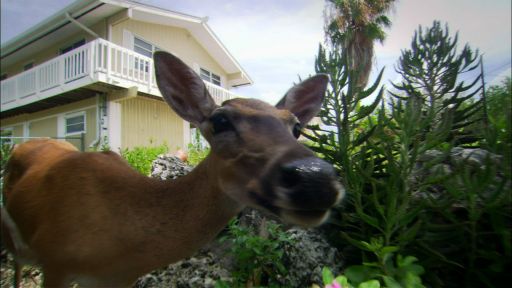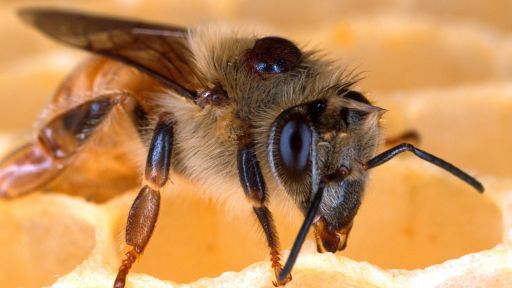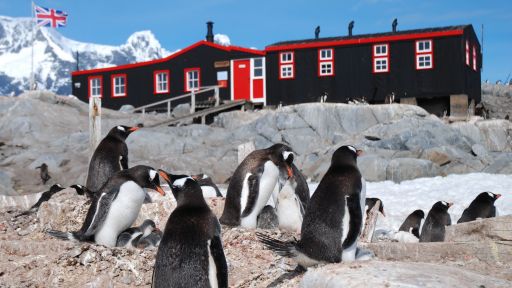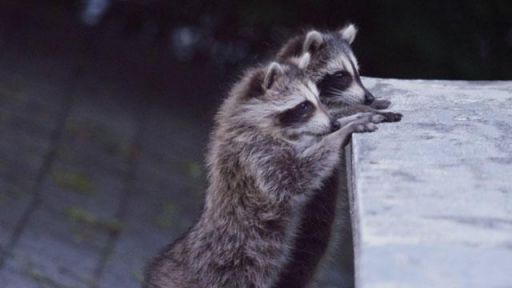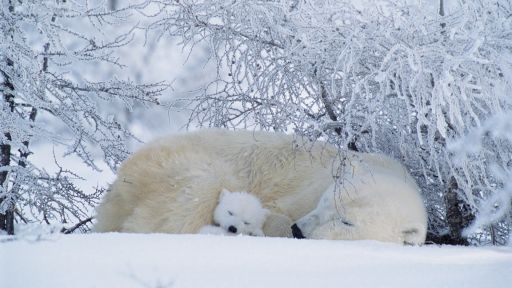Hippos have a formidable reputation, killing about 500 people across Africa every year. Few filmmakers have attempted to capture their lives in detail, but director Brad Bestelink was determined to take up the challenge.
Features
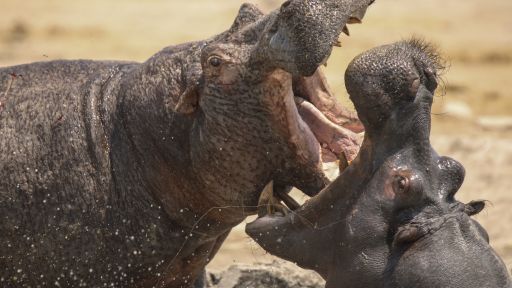

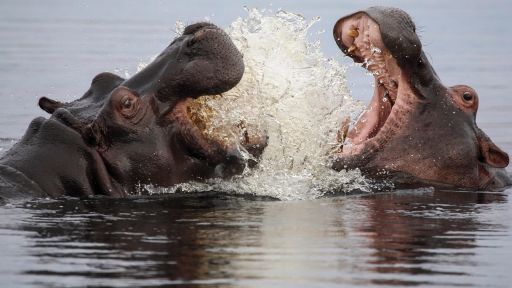
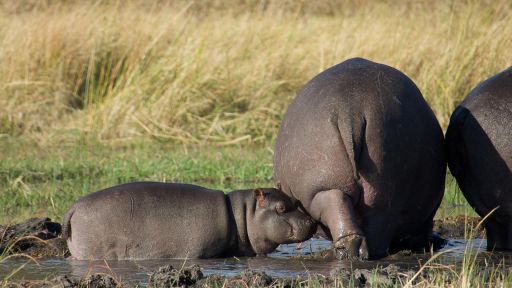
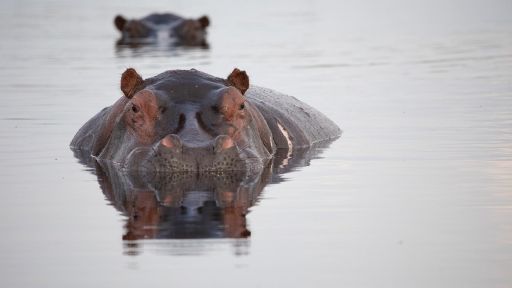
(gentle music) (water splasihing) - [Narrator] Hippos have a formidable reputation.
Across Africa they kill around 500 people every year.
Few filmmakers have attempted to capture their lives in detail, but director Brad Bestelink was determined to take up the challenge.
- I was born to the delta, brought into the swamp when I was four days old.
I've always wanted to make a film about hippos in Okavango, simply because they are pivotal to the way the whole Okavango itself functions.
(airplane engine whirring) - [Narrator] With the best location for filming identified from the air, Brad and cameraman Mike Amos head out in the boat.
- [Mike] It's very difficult.
You need to get really close to animals underwater to be able to get the footage and understand what they're doing, but you don't wanna get too close to them because they're dangerous.
- [Narrator] Brad has had personal experience at this when he once accidentally surprised a hippo.
(boat engine whirring) - He obviously got a hell of a fright when he saw us.
He hit the side of the boat, threw us off.
We caught him in the shallow.
He felt vulnerable, lashed out.
All the gear on the boat just went to the bottom.
I've just spent the last hour diving all this stuff out.
Quite a frightening experience.
- [Narrator] To avoid a similar situation, Brad hopes to plant a pole camera directly in a hippos path.
- There's a hippo there.
There's a hippo there, coming this way.
- Okay, cool. - It's coming that way.
- Set up the-- - Whoa, whoa, whoa, Mike, watch here.
What we were after.
(boat engine cranking) - [Narrator] Now, they need to set the camera as quickly as possible.
- [Brad] Wait a sec, there's another one here somewhere.
As soon as this is in, we've gotta get out of sight of them.
- Okay. (boat engine whirring) - [Brad] That's good.
(boat engine whirring) (water sloshing) (dramatic music) - [Narrator] Camera in position, it's a waiting game.
- You'd be amazed at how subtle a lot of the signs are of hippo.
I mean, it's such a big animal, but it really just goes really quietly and doesn't spend too much time on the surface.
- [Narrator] The hippos could be anywhere.
- It's amazing that you can lose a hippo. (scoffs) (water sloshing) - [Narrator] Research suggests that hippos can hold their breath for a maximum of five minutes.
So, after 10 minutes, Brad moves in to collect the camera, but the hippo is still there.
- [Brad] He's right here. (beeps) (boating engine whirring) (water splashing) (boat engine whirring) (laughing) - [Narrator] It seems that hippos can stay under the water much longer than anyone thought possible.
(water sloshing) (gentle music) Persisting with the pole cam pays off, (water sloshing) getting them some beautiful shots of the hippo in their underwater world.
But Brad didn't want to stop there.
He wanted a deeper insight, and that took a bit of creativity.
(camera buzzing) (bright music) - In our sort of pursuit to film hippos, we've had various iterations of cameras.
We've had remote control boats that hippos have eaten.
(water sloshing) We've got floating cameras, which every time a hippo moves, it tends to rock.
- [Narrator] Even the underwater microphone became a curiosity.
(water splashing) (hippo screeching) (water sloshing) So, Brad had to come up with something that had never been done before.
- [Brad] Basically, it's a underwater remote control car, and it's got to literally crawl its way through the sand and vegetation.
- [Narrator] Time for a test run.
- [Brad] (laughing) Look at that thing.
Look at that thing.
Go findin' hippo!
- [Narrator] With the test a success, they now need to place the camera near a hippo, a somewhat bigger challenge.
(boat engine whirring) - Just gonna have a look at this pool and see if it's got the right entrance and the right current.
I think we could anchor on it and send it down that channel.
(water sloshing) - [Mike] Off he goes.
(dramatic music) - [Narrator] For days on end, they film nothing but fish.
- The pod is very aware of where it is.
Can't tell you the amount of hours I spent looking at this monitor into murky water and not seeing anything.
- [Mike] Looks like there's a couple fairly close by.
- Ooh, got a hippo right in the lens.
He's coming in good, look.
Straight look into it. - Ooh, all right.
(water sloshing) - See all the hairs, bristly hairs of his nostrils, another one.
(water sloshing) Geeze, that's amazing.
(laughing) - [Narrator] For Brad, it's the culmination of a lot of hard work.
- It's been sort of four years of trial and error.
It's wonderful, really.
You actually feel like you're in the water.
It's sort of nerve wracking, having a hippo walk up to this little camera.
- [Narrator] Capturing such intimate footage has given Brad a different perspective on these notorious animals.
- It's a big, dangerous animal, but they're also very sensitive, very skittish.
I really think that aggressive man-killing animal is not an accurate reflection of what they are.
I think that they're timid, sweet, intelligent, very sensitive animals.
- [Narrator] These unique images wouldn't have been possible without Brad's knowledge of the delta and determination to tell the hippos' story.
- To protect them, you need to let people understand it from nature.
They are ultimately, intrinsically important to the functioning of the entire swamp.
(dramatic music)
You May Also Like
